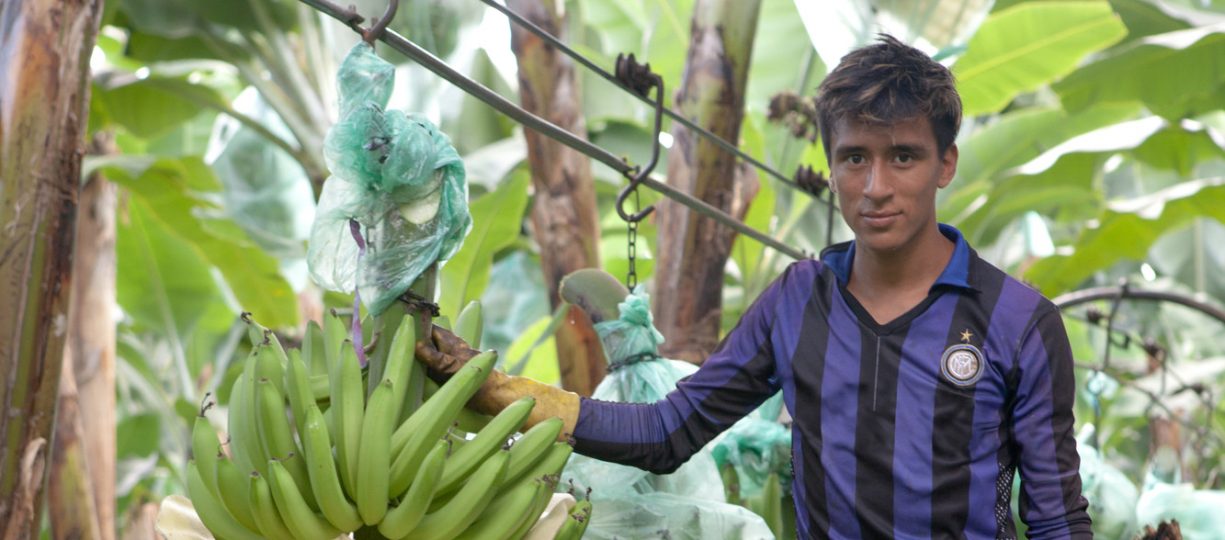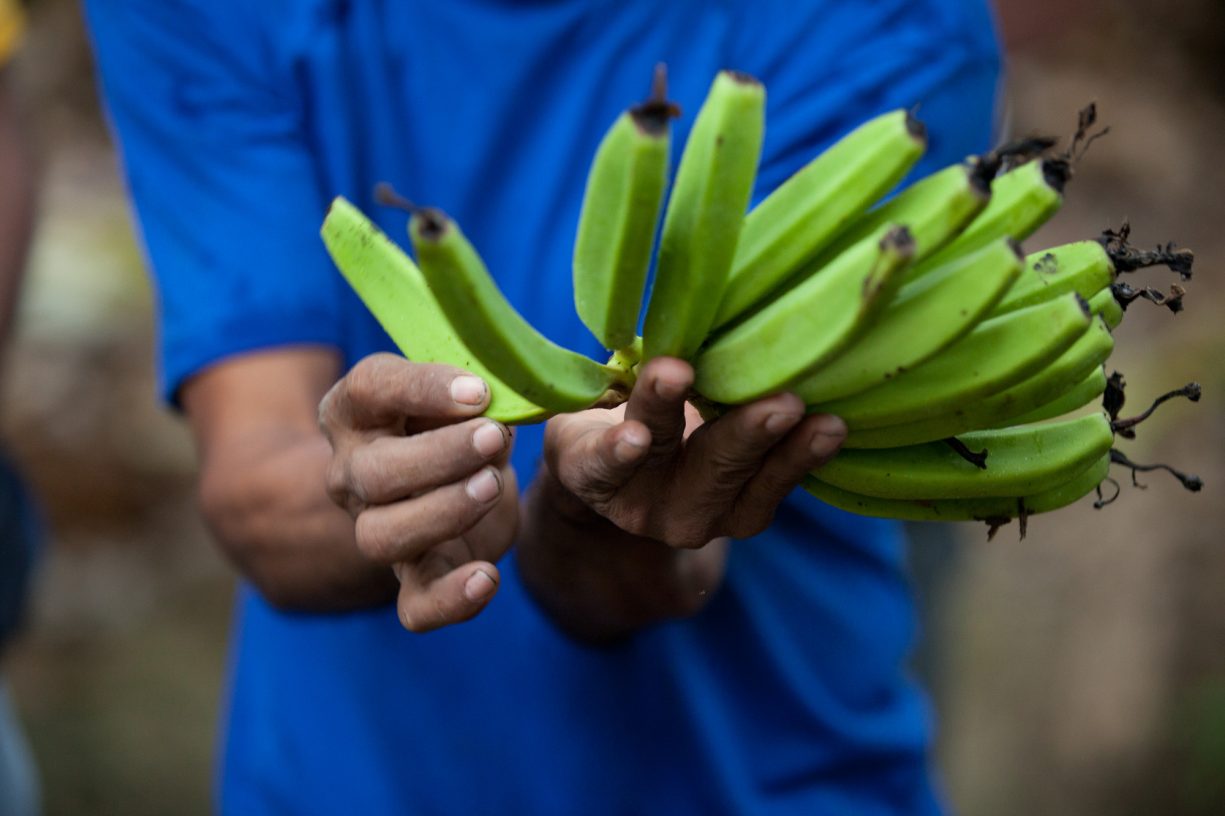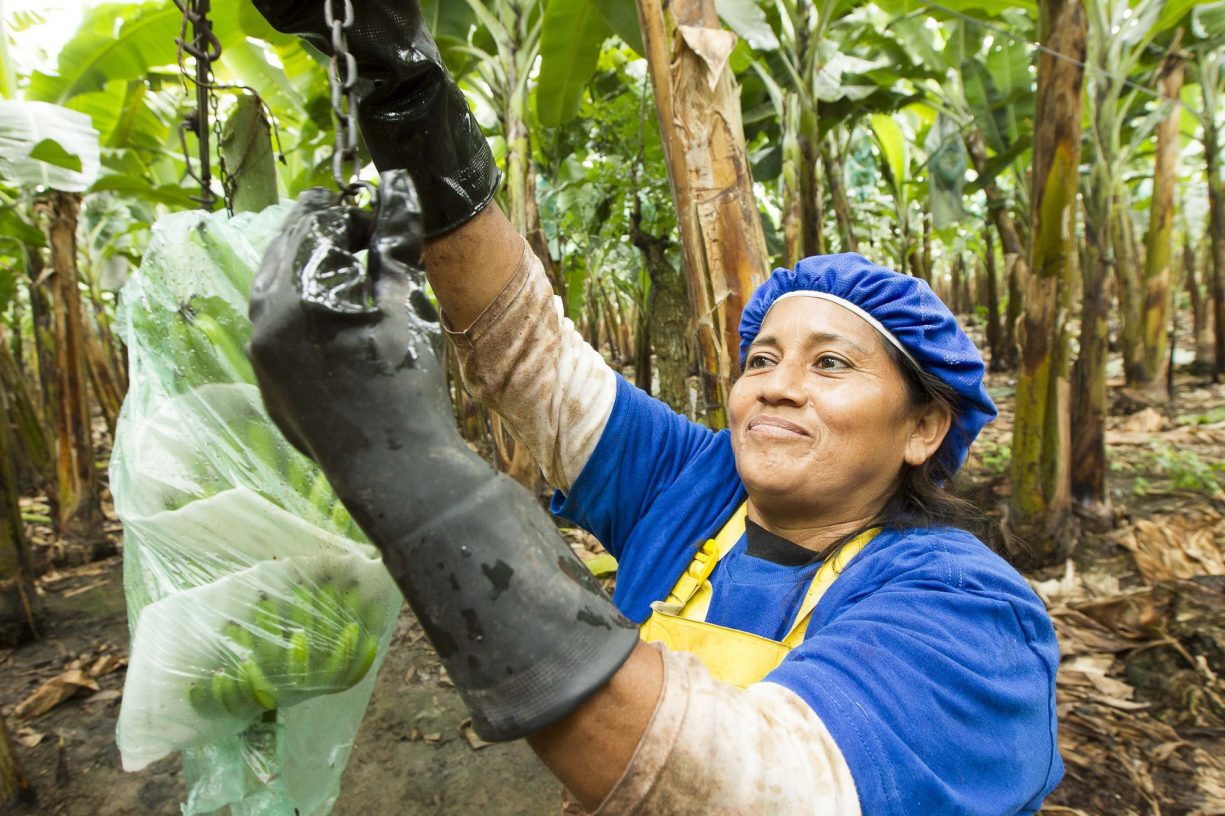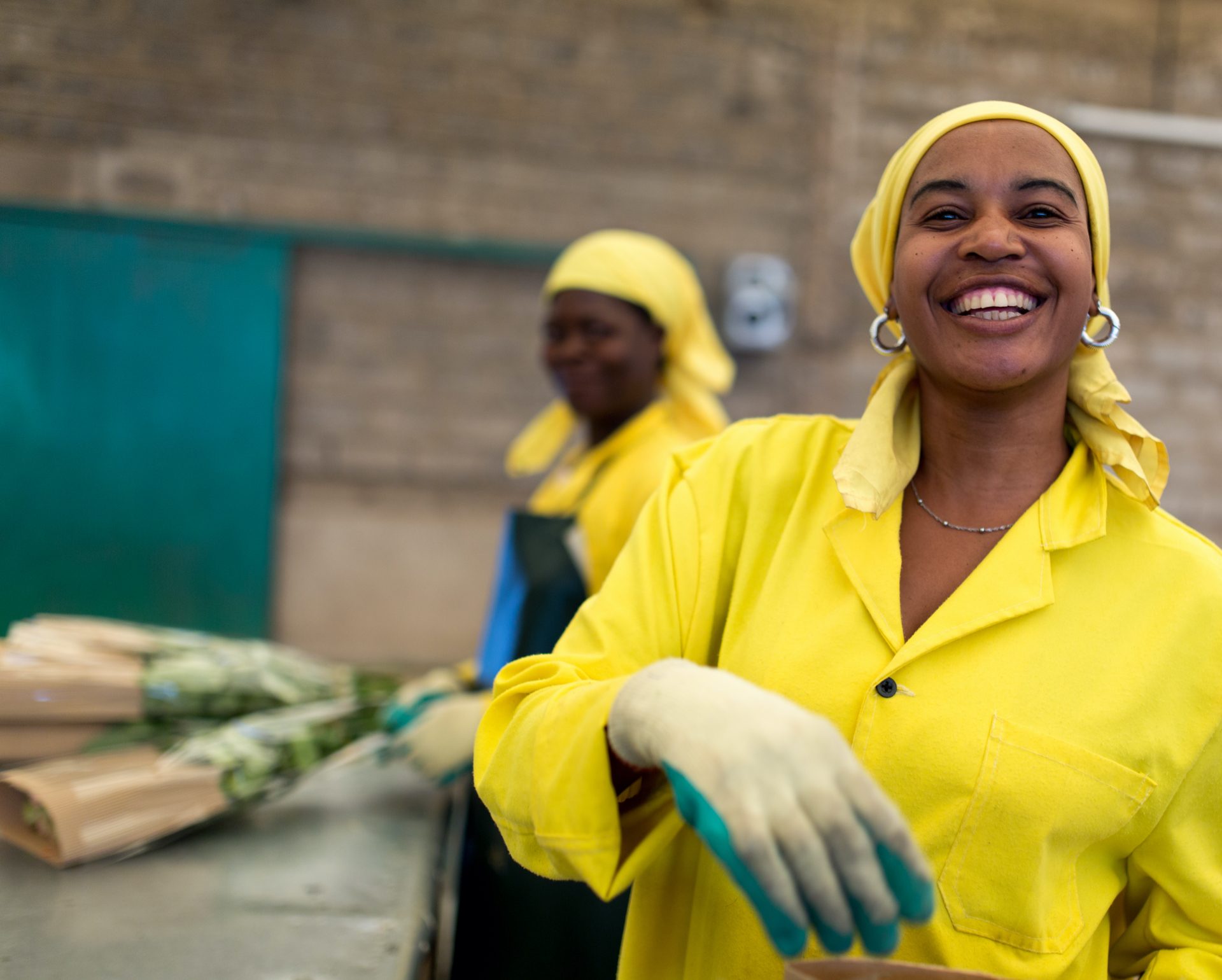El Guabo, Ecuador

 In 1997, fourteen intrepid banana farmers in southwestern Ecuador took a leap of faith and shipped a container of bananas across the ocean in search of better markets.
In 1997, fourteen intrepid banana farmers in southwestern Ecuador took a leap of faith and shipped a container of bananas across the ocean in search of better markets.
By cutting out local intermediaries and dealing directly with international buyers, they hoped to improve the quality of life for themselves and their families. Since that humble launch Fairtrade bananas have come a long way for the farmers of El Guabo, who now export 23,000 boxes of Fairtrade bananas each week, with half of those also certified organic.
A stormy past
There are few fruits with a history as tainted as bananas. Wars have been waged, labor organizers and regular workers threatened or murdered, and small farmers have been throttled by margins so tight that they couldn’t feed their families.
Bananas are big business in the US. According to the USDA, the average American ate 11.4 pounds of bananas in 2013 and they are the top import among fresh fruits.
the average American ate 11.4 pounds of bananas in 2013.
They also hold a special distinction in supermarkets. They’re bright, they’re yellow and low prices bring customers through the door. Hence retailers often apply heavy pressure on traders and producers to lower prices and margins.
Savvy Small Business Owners
The first members of El Guabo were small-scale farmers with little influence in the market and seasonal migrants working land they didn’t control. Since that time, the membership has grown to more than 2,000 and the farmers have spread their influence. Half of the cooperative’s employees are women, including a third of the leadership. Farm owners have an average of 6 hectares of land. Their bananas can be found in the US, Canada, the UK, Italy, Switzerland, Germany, and New Zealand.
They also hold a unique position as the only Fairtrade banana farmers who are also co-owners of an importer, Agrofair, who helped them with their first container when they began. This joint ownership of the supply chain gives small farmers a stronger voice in trade and allows them to reap more of the benefits of the banana trade.
Fairtrade Benefits

For the farmers of El Guabo, the Fairtrade Minimum Price can serve as a safety net when market prices fall below the level of sustainable production – something that happens with regularity. And the farmers who produce organic bananas receive an extra amount to compensate for producing more sustainably. This stability allows farmers and the cooperative to better plan for the future.
And the additional Fairtrade Premium for development on each box of bananas sold helps them invest in their community and business, or whatever the farmers of El Guabo democratically choose. Projects recently funded by the Fairtrade Premium include:
- Improvements to their facilities, including construction of new offices and a loading dock to pack containers.
- For workers: School and Christmas bonuses, mortuary funds, private insurance and social security.
- For farmers: Fertilizer and packing house improvements. Also a workshop that to support new innovations in organic production.
- For the community: A medical dispensary, school support (teaching materials, backpacks & school supplies) and physical therapy for the disabled.
- Creation of a plantation-style farm on rented local land in order to grow more bananas for export, and hire additional local workers who don’t own their own land, giving them access to more Premium funds.
Fairtrade has improved our members’ and farm workers’ standard of living. We now have the resources to help the community and conserve the environment.
Jovanny Coronel, Treasurer El Guabo
Challenges and Opportunities
Even for all their success, El Guabo faces challenges. A changing climate is making banana cultivation more difficult than ever with an increase in pests and disease, which affects quality and productivity. In particular, the Black Sigatoka fungus is a constant threat that must be managed. These problems can in turn affect membership as farmers have to learn how to adapt and fight off the disease.
In addition, the farmers continue to compete for market space with unscrupulous growers and plantations who can afford to sell for less thanks to the poor treatment of workers and environmental shortcuts.
Challenges aside, the farmers of El Guabo continue to work for trade on fairer terms. The Fairtrade Minimum Price and the extra farmers receive for producing organic bananas lend stability and help farmers plan for the future. And the Fairtrade Premium gives them what they need to invest in their community and business.

